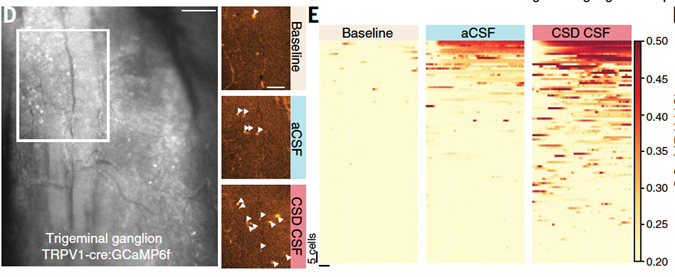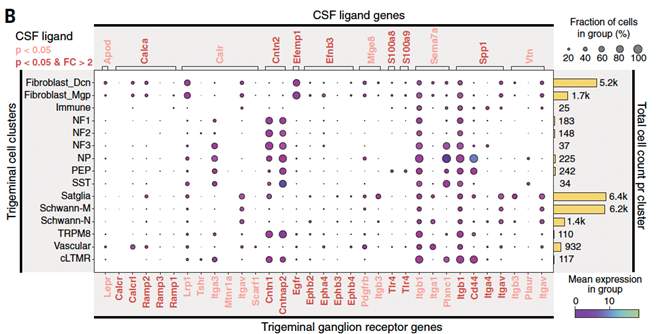Master thesis – development of an awake behavior migraine model using optogenetics and fiber photometry
About the project:
Migraine affects up to 1 out of 10 and is characterized by a unilateral throbbing headache which can be followed by nausea, vomiting, photo and phonophobia, and exacerbation of headache during physical activity. In about one third of migraine patients, the migraine headache is preceded by transient neurological symptoms lasting 5-60 minutes.
In a recent publication, we have identified several new molecules that likely provoke migraine (see Trigeminal ganglion neurons are directly activated by influx of CSF solutes in a migraine model). To test whether inhibiting the signaling of these molecules prevents or aborts migraine headache, we are developing a behavioral assay.


Headache disease models are notoriously tricky to characterize in animal models, since specific biomarkers are lacking, and behavioral assays are only somewhat able to detect the subtle changes migraine attacks might inflict. Just think about how in humans, migraine diagnostics is 100% based on a patient interview, and therefore in clinical settings based on the patient’s subjective experience. This is of course impossible to do in a rodent model.
However, the technological and computational advancement in science has started to change this. We are planning to use tools such as optogenetics, fiber photometry and behavioral sequencing (e.g., Deep Lab Cut) to generate a behavioral assay for migraine with aura in mice where the effect of putative migraine abortive and preventive drugs can be tested.
We are seeking a master student with an interest in translational neuroscience to develop an animal preparation where we use transgene mice to induce migraine with aura using optogenetics, and where we quantify migraine attacks with genetically encoded calcium indicators. All this is to be done in a freely moving awake animal.
About the candidate:
Preferably you have experience with small animal handling, and if you already have FELASA certification that is a plus. The candidate will be trained in transgenic models, optogenetics, fiber photometry and behavioral sequencing. Any prior experience in any of these fields is an advantage for the candidate.
Contact:
Please write an email with your letter of interest and including a 1-page CV to post doc Martin Kaag Rasmussen, Center for Translational Neuromedicine at martin.rasmussen@sund.ku.dk.
